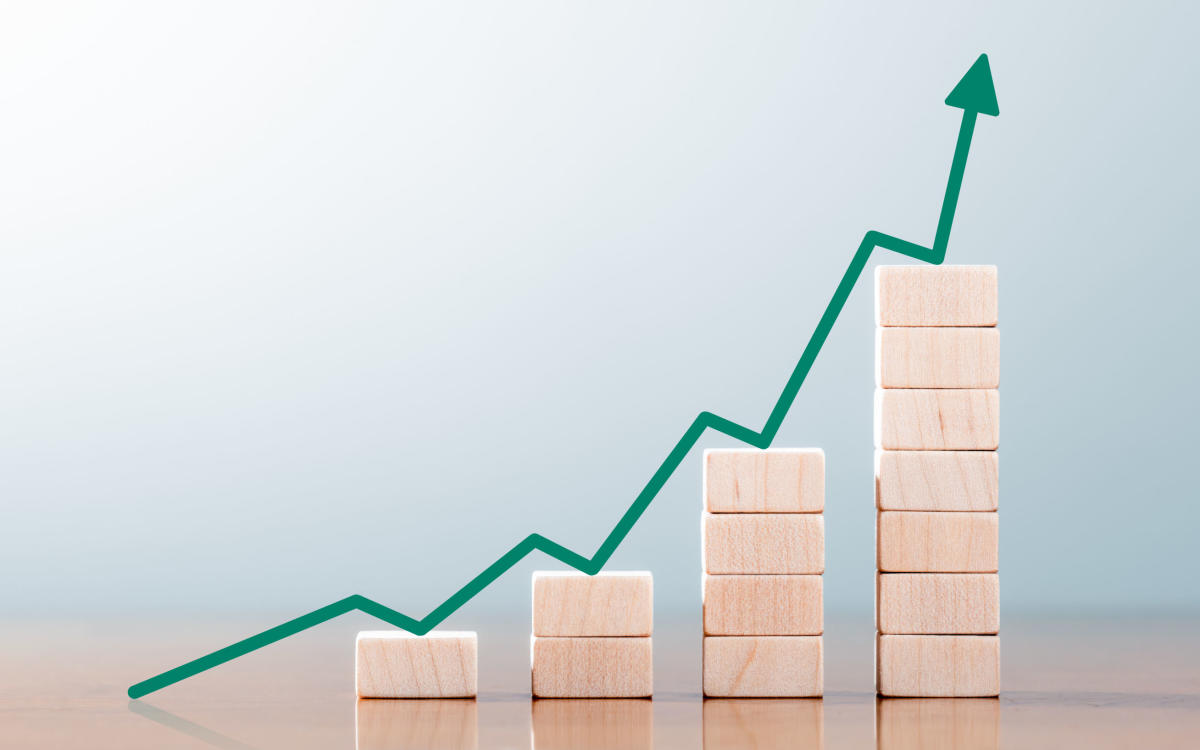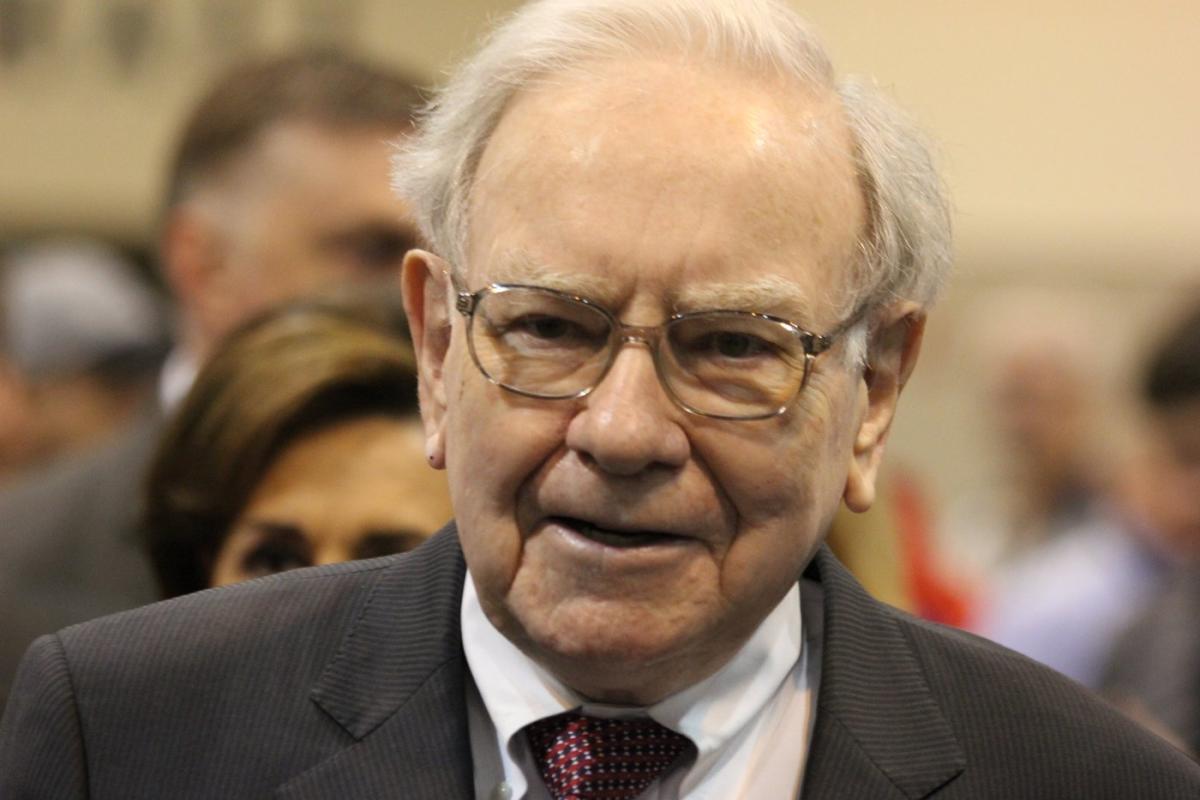Not that it’s a competition, but a company’s relative size (measured by revenue, profit, or market capitalization) can be a clear indication of its past and current success. In fact, relative changes in each of these measures can help investors discover where the real growth is… and where it isn’t.
With that as background, here’s a look at three companies that could be bigger Apple (NASDAQ: AAPL) within the next decade. And that says something. The iPhone maker’s current market capitalization is $2.9 trillion, making it the second-largest publicly traded company in the world (right behind Microsoft).
1. Broadcom
When most investors think of artificial intelligence (AI) stocks, names like Microsoft or… Nvidia comes to mind. Broadcom (NASDAQ:AVGO) usually not.
But maybe it should.
Broadcom produces many of the components you find in wireless connectivity technology, such as Wi-Fi routers and wireless modems. It also makes fiber optic connectivity equipment and Ethernet networking solutions, as well as software that gets the most out of this hardware. Without this company’s solutions, the wireless connectivity landscape would look significantly different.
However, there is a very specific reason why Broadcom could be a bigger company than Apple in ten years. That’s the market Broadcom is quietly penetrating: artificial intelligence (AI). In short, this company makes the chips that AI data centers need, but that most people never think about.
Take, for example, Broadcom’s 200G/lane vertical-cavity surface-emitting laser (VCSEL), which was unveiled earlier this year. This is the industry’s first fiber optic equipment capable of handling the massive amount of digital data processed and delivered by AI platforms.
Earlier this year, the company also introduced the first 51.2 terabit per second (Tbps) co-packaged optical Ethernet switch, which not only connects multiple processors at lightning speed, but also uses 70% less power. than comparable technology. This equipment does not compete with Nvidia’s processors, but it does complement Nvidia’s products.
All told, Broadcom expects to sell about $10 billion worth of AI-oriented chips this year. For perspective, that’s about 10% of the company’s projected revenue in 2024. However, this amount still only scratches the surface. Straits Research believes that the AI infrastructure market will grow at an annual rate of almost 21% per year until 2030.
Broadcom is already a leader in this overlooked part of the AI market and is positioned to capture more than its fair share of growth. That growth could easily push its current market cap of $650 billion beyond Apple’s. This is especially true as Apple’s business shifts from a growth-oriented business driven by iPhone sales to a slower-moving, value-oriented business led by its services division.
And speaking of value…
2. Berkshire Hathaway
While Broadcom is a technology growth stock, not all big opportunities have to come from this category of tickers. Don’t be surprised if you see incredible growth from a name at the far opposite end of this spectrum: a value-oriented holding company like Berkshire Hathaway (NYSE: BRK.A) (NYSE: BRK.B).
Surprised? It would be a bit unusual if you were not. Value stocks are so called in large part because these companies are not capable of high growth. Their strong point is consistent cash flow that often translates into reliable dividends. It’s no secret that Warren Buffett – the head guru behind Berkshire Hathaway – is content to leave $189 billion of Berkshire money uninvested simply because he doesn’t think such stocks are worth buying at their current price.
But there’s a very specific strategic reason why you might want to consider taking a stake in Berkshire Hathaway sooner rather than later: We may be on the cusp of a multi-year wave of strong value stock performance.
This prediction is supported by the current economic backdrop. Interest rates are high, inflation is high, and debt (both corporate and consumer) is high And duration. While this doesn’t necessarily cause a recession, these are conditions that often work against growth stocks but aren’t too problematic for value stocks. A handful of value-oriented sectors with strong pricing power – such as utilities and consumer staples – can thrive in such an environment.
Sure, it’s a bit concerning that Berkshire would rather do nothing with its idle cash than at least take a shot at a low-risk dividend payer. If capital isn’t put to work, the company’s market cap — currently nearly $900 billion — may never reach or eclipse Apple’s current capitalization of just under $3 trillion.
Don’t worry about it too much though. Most of Berkshire Hathaway’s value is represented by existing holdings in value stocks or private companies. And over the next decade, Buffett and his deputies are sure to find a few more opportunities worth diving into.
3. Amazon
Last but not least: add e-commerce giant Amazon (NASDAQ: AMZN) to your list of companies that could be bigger than Apple in ten years.
It has one of the shortest distances to travel. Amazon’s current market cap is a whopping $1.9 trillion, compared to Apple’s $2.9 trillion. Granted, Amazon’s highest growth days are likely in the rearview mirror as well, and even if Apple’s future isn’t as compelling as its past, it’s still making progress.
However, there’s something new about Amazon that could still easily catapult it past Apple in 2034. That’s the fact that Amazon is finally focusing on profitability as much as – if not more than – on revenue growth. The net profit margin rate of 6.4% (of sales) in the last quarter is the most profitable the company has ever been since the worst of the COVID-19 pandemic, which was a clear boon for the company. The gross profit margin of 47.6% in the same quarter is also a company record, continuing a long line of steady improvements since 2012.
What drives this margin growth? Most investors know that the company’s cloud computing business is significantly more profitable than its e-commerce business. Although Amazon Web Services (AWS) only accounts for about 16% of Amazon’s revenue, AWS is responsible for about two-thirds of the company’s operating revenue. Growing this company is doing more than its share of the heavy lifting.
However, the part of the bullish thesis that isn’t fully appreciated by interested investors actually lies on the e-commerce front. This branch is now more profitable than ever before. Nearly 6% of its North American sales last quarter were converted into operating income, while its long-money-losing international e-commerce operation has returned to obscurity after finally turning profitable during and because of the pandemic.
Whatever was missing from the formula – maybe it was just scale – is now there. Most investors don’t seem to see this yet, but they will as Amazon continues to make the most of its enormous size and now-sophisticated operations.
Should You Invest $1,000 in Amazon Now?
Before you buy stock in Amazon, consider this:
The Motley Fool stock advisor The analyst team has just identified what they think is the 10 best stocks for investors to buy now… and Amazon wasn’t one of them. The ten stocks that survived the cut could deliver monster returns in the coming years.
Think about when Nvidia created this list on April 15, 2005… if you had $1,000 invested at the time of our recommendation, you would have $652,342!*
Stock Advisor provides investors with an easy-to-follow blueprint for success, including portfolio building guidance, regular analyst updates, and two new stock picks per month. The Stock Advisor is on duty more than quadrupled the return of the S&P 500 since 2002*.
View the 10 stocks »
*Stock Advisor returns May 28, 2024
John Mackey, former CEO of Whole Foods Market, an Amazon subsidiary, is a member of The Motley Fool’s board of directors. James Brumley has no position in any of the stocks mentioned. The Motley Fool holds positions in and recommends Amazon, Apple, Berkshire Hathaway, Microsoft and Nvidia. The Motley Fool recommends Broadcom and recommends the following options: long January 2026 $395 calls to Microsoft and short January 2026 $405 calls to Microsoft. The Motley Fool has a disclosure policy.
Prediction: 3 Stocks That Will Be Worth More Than Apple in Ten Years, originally published by The Motley Fool







